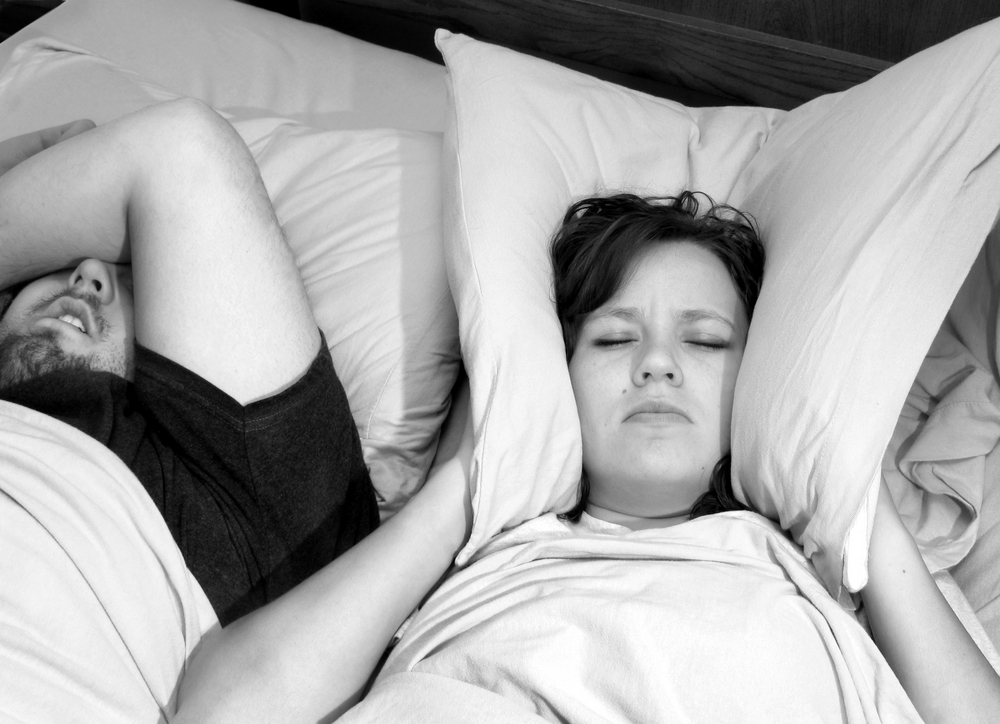Sleep hygiene tips and rules
 Lack of sleep at night is one of the most common causes of chronic fatigue which can contribute to physical and mental health issues and even increase the risk of diseases such as dementia and cancer. Chronic wakefulness leads to a decline in self-esteem, relationship issues both at home and at work.
Lack of sleep at night is one of the most common causes of chronic fatigue which can contribute to physical and mental health issues and even increase the risk of diseases such as dementia and cancer. Chronic wakefulness leads to a decline in self-esteem, relationship issues both at home and at work.
This page provides some tips to help you sleep but if sleeplessness is associated with depressive thoughts and is persistent, it may be worth talking to your GP as this may be an early sign of depression. Additionally, there are a number of physical symptoms which can disrupt sleep and may response to treatment, so also worth discussing with your doctor::
- Aches in the joints, pins & needles in figures and toes, other pains
- Hot flushes (night sweats) or itching
- Breathlessness when lying flat – heart failure
- Passing water more often (nocturia)
- Heartburn or indigestion
- Side-effects related to steroid use
- Sore mouth and eyes
Self-help lifestyle tips
Before considering sleeping tablets it is worth considering these lifestyle tips which have evidence of working for many people especially if supported by dietary interventions.
Circadian rhythm and sleep schedule:
It is important to maintain a regular light-dark cycle as this affects normal circadian rhythm and, consequently, the body’s production of melatonin, cortisol and other regulatory hormones. This is difficult if you are travelling across time zones and working at night, but the following tips may help.
 Increase bright (blue) light exposure during the day: One of the best ways to set your circadian clock is to be exposed to bright light (ideally sunlight) during the day. The component of sunlight that tells your circadian clock that it’s daytime is blue light, which triggers sensitive photoreceptors in the eyes and to a lesser extent skin. This is one explanation as to why we feel in a good mood when looking at a blue sea. In general, try to get as much natural light as possible during the day. If there is no opportunity to get natural light during the day, a biological alternative would be to put your head into a light box for at least 15 minutes at roughly the same time each day. Another option is to make a number of small changes to brighten your environment during the day, such as by using sunlight spectrum light bulbs in your house (while avoiding using these light bulbs in the evening), keeping curtains open during the day and trying to face a window as much as possible.
Increase bright (blue) light exposure during the day: One of the best ways to set your circadian clock is to be exposed to bright light (ideally sunlight) during the day. The component of sunlight that tells your circadian clock that it’s daytime is blue light, which triggers sensitive photoreceptors in the eyes and to a lesser extent skin. This is one explanation as to why we feel in a good mood when looking at a blue sea. In general, try to get as much natural light as possible during the day. If there is no opportunity to get natural light during the day, a biological alternative would be to put your head into a light box for at least 15 minutes at roughly the same time each day. Another option is to make a number of small changes to brighten your environment during the day, such as by using sunlight spectrum light bulbs in your house (while avoiding using these light bulbs in the evening), keeping curtains open during the day and trying to face a window as much as possible.
Avoid bright and blue light in the evening or at night: Just as it’s important for your body to get the signal that it’s daytime during the day, it’s important to tell your body it’s nighttime once the sun goes down. This means avoiding blue light and sticking with red and yellow wavelengths, as well as keeping the overall light level much lower. You can send this important “darkness signal” to your circadian clock by keeping your indoor lighting as dim as possible in the evenings with dimmer switches or by just turning on fewer lights, in conjunction with investing in red or yellow light bulbs for whatever lamps you use in the evening. If you plan to use a computer monitor or watch TV, there are two options. The first is to install a flux application on your computer, phones or tablets and set the screen brightness to the lowest setting.
 The second, and probably the best biohack, is to wear amber-tinted glasses for the last 2-3 hours of your day. Several scientific studies show that wearing amber-tinted glasses in the evening improves sleep quality and supports melatonin production. A more sophisticated option for getting both your bright blue light during the day and your dim red light in the evening is to use programmable light bulbs which allow you to set the colour spectrum and the brightness for the time of day. Once you go to bed, sleep in a completely dark room, cover up any LED lights on phones, toothbrushes, baby monitors, or whatever other gadgets you have plugged in and ditch the nightlights or switch to ones with red light bulbs. Blackout curtains help, as can white noise generators, especially if there are high frequency/pitch noises in or outside your home since these are very stimulating for the brain. If you need to use the loo at night, either learn to navigate in the dark or use as little light as possible.
The second, and probably the best biohack, is to wear amber-tinted glasses for the last 2-3 hours of your day. Several scientific studies show that wearing amber-tinted glasses in the evening improves sleep quality and supports melatonin production. A more sophisticated option for getting both your bright blue light during the day and your dim red light in the evening is to use programmable light bulbs which allow you to set the colour spectrum and the brightness for the time of day. Once you go to bed, sleep in a completely dark room, cover up any LED lights on phones, toothbrushes, baby monitors, or whatever other gadgets you have plugged in and ditch the nightlights or switch to ones with red light bulbs. Blackout curtains help, as can white noise generators, especially if there are high frequency/pitch noises in or outside your home since these are very stimulating for the brain. If you need to use the loo at night, either learn to navigate in the dark or use as little light as possible.
Aim for regular bedtimes and try to get enough sleep: Your melatonin starts increasing about two hours before bed to prepare your body for sleep. If you’re powering through that period with a sugary snack, a scary movie, or whatever else you do to keep yourself awake at night, you are affecting your circadian rhythms. Aim for 7-10 hours of sleep every night (most people need between 8 – 9 hours).
Stay cool at night: The temperature that you’re sleeping in is a cue for your circadian clock. Ideally, your indoor temperature at night should be lower than temperatures during the day.
Ditch the alarm clock: Waking up to a jarring noise is very stressful. If you don’t have the luxury of sleeping until your body naturally wants to wake every morning (which is the best option for protecting your circadian rhythm and overall health), use a light alarm which gradually gets louder.
Reduce and manage stress:
 You probably recognise cortisol as being the master stress hormone, but as mentioned above, it’s also a very important circadian rhythm hormone. This means that if you’re under stress, not only do you have all the effects of elevated and dysregulated cortisol to deal with, but you also disrupt your circadian rhythm. Effective measures you can take include; making changes to the structure of your work and social life, making time for regular exercise, taking up meditation or yoga, or simply making time for relaxing activities such as taking a bath.
You probably recognise cortisol as being the master stress hormone, but as mentioned above, it’s also a very important circadian rhythm hormone. This means that if you’re under stress, not only do you have all the effects of elevated and dysregulated cortisol to deal with, but you also disrupt your circadian rhythm. Effective measures you can take include; making changes to the structure of your work and social life, making time for regular exercise, taking up meditation or yoga, or simply making time for relaxing activities such as taking a bath.
Physical activity:
 Exercise generally promotes good quality sleep and also helps reduce anxiety and depression. As little as 10 minutes of aerobic exercise, such as walking or cycling, can drastically improve nighttime sleep quality. For a good night’s sleep, most people should avoid strenuous workouts close to bedtime. However, the effect of intense night time exercise on sleep differs from person to person, so find out what works best for you.
Exercise generally promotes good quality sleep and also helps reduce anxiety and depression. As little as 10 minutes of aerobic exercise, such as walking or cycling, can drastically improve nighttime sleep quality. For a good night’s sleep, most people should avoid strenuous workouts close to bedtime. However, the effect of intense night time exercise on sleep differs from person to person, so find out what works best for you.
Food to avoid:
 Steer clear of heavy or rich foods, fatty or fried meals, spicy dishes and carbonated drinks, all of which can trigger indigestion in some people. When this occurs close to bedtime, it can lead to painful heartburn that disrupts sleep.Obviously, omit coffee or caffeinated drinks, preferably from mid afternoon but chocolate also has stimulants such as theobromine. Processed sugar in the evening is particularly bad for sleep as it causes peaks and troughs in blood sugar levels. Many hormones are sensitive to swings in blood sugar, including both melatonin and cortisol. Prevent spikes in blood sugar levels by avoiding high glycemic foods and instead concentrating on complex carbohydrates and healthy fats, both of which will help you avoid hunger pangs overnight
Steer clear of heavy or rich foods, fatty or fried meals, spicy dishes and carbonated drinks, all of which can trigger indigestion in some people. When this occurs close to bedtime, it can lead to painful heartburn that disrupts sleep.Obviously, omit coffee or caffeinated drinks, preferably from mid afternoon but chocolate also has stimulants such as theobromine. Processed sugar in the evening is particularly bad for sleep as it causes peaks and troughs in blood sugar levels. Many hormones are sensitive to swings in blood sugar, including both melatonin and cortisol. Prevent spikes in blood sugar levels by avoiding high glycemic foods and instead concentrating on complex carbohydrates and healthy fats, both of which will help you avoid hunger pangs overnight
Improve your gut health:
 Bloating and wind can make you feel uncomfortable at night. There is now convincing that poor gut health can lead to sleep disorders via a gut brain pathway. Conversely, lack of sleep can increase gastric acid secretion and gut motility at night which can effect the profile of healthy to unhealthy bacteria. It is really important to adopt lifestyle and dietary strategies to improve gut health such as eating healthy pro-bacteria bacteria rich foods such as kimchi, kefir and sauerkraut and well as pre-biotics in beans, mushrooms, herbs and vegetables. There are several resources provide practical tips to improve gut health. In addition, There are study which have shown that a good quality lactobacillus probiotic supplement.
Bloating and wind can make you feel uncomfortable at night. There is now convincing that poor gut health can lead to sleep disorders via a gut brain pathway. Conversely, lack of sleep can increase gastric acid secretion and gut motility at night which can effect the profile of healthy to unhealthy bacteria. It is really important to adopt lifestyle and dietary strategies to improve gut health such as eating healthy pro-bacteria bacteria rich foods such as kimchi, kefir and sauerkraut and well as pre-biotics in beans, mushrooms, herbs and vegetables. There are several resources provide practical tips to improve gut health. In addition, There are study which have shown that a good quality lactobacillus probiotic supplement.
 Eat phytochemical and melatonin-rich foods:
Eat phytochemical and melatonin-rich foods:
Melatonin is made from serotonin, which in turn is made from tryptophan. Seafood is rich in tryptophan, and also has less of the other amino acids which compete with tryptophan to cross the blood-brain barrier, while Morello cherries, pomeganate and citrus bioflavonoids containing food are rich in the plant precursors of melatonin (known as phytomelatonins). Therefore, eating a diet containing seafood and cherries is a good way to boost production of both serotonin and melatonin. Seafood is also high in long-chain omega-3 fats which have been shown to improve general brain health and, subsequently, help support the body’s circadian rhythm. Ginger has phytomelatonin, so a good nightcap would be some grated ginger with hot water, a little lemon and mint. Also, consider boosting the intake of these foods with a good quality supplement such as Phytonight-plus.
\
Sleep Hygiene tips (Summary)
- Reducing caffeine intake (tea, coffee, energy drinks) after 4 pm and preferably after 2 pm. If this does not help, try cutting these altogether
- Avoid sweet foods in the evening
- Alcohol may make you initially sleepy, but often then leads to a restless night. Try giving up drinking for 2 weeks to see if there is any improvement in sleep quality
- Nicotine is a stimulant which can keep you awake, so avoid smoking at night. Heavy smokers actually suffer withdrawal of nicotine at night, leading them to wake up anxious and alert
- Avoid drinking large amounts of liquids prior to bedtime – it fills the stomach and causes you to have to pass water often
- Avoid hunger or excessive eating before bedtime
- Avoid taking daytime naps unless essential
- Establish a regular pattern of sleeping – set a time to go to bed and a time to wake up
- Sleep only as much as you need to feel rested
- Go to bed only when you are sleepy
- If you are unable to fall asleep within 20 – 30 minutes, get up and perform a relaxing activity until drowsy and ready for sleep (avoid exposure to light)
- It is important not to expose yourself to bright or artificial lights at night, particularly from smartphones or computers
- Exercise regularly, but do not exercise within 2 hours of bedtime
- Engage in a quiet relaxing activity before bedtime
- Do not watch exciting TV programs or read stimulating books in bed late at night – read something boring!
- Avoid temperature extremes
- Ensure the bedroom is dark – use blackout curtains if necessary
- Try to ensure the room is quiet – wear earplugs if necessary
